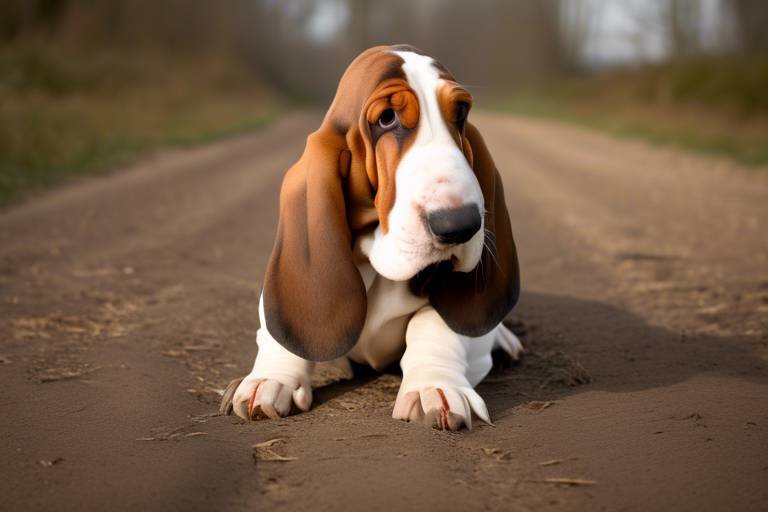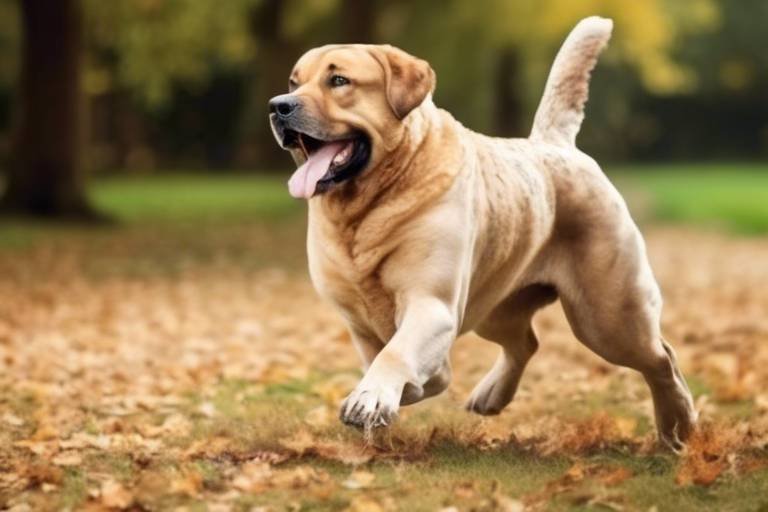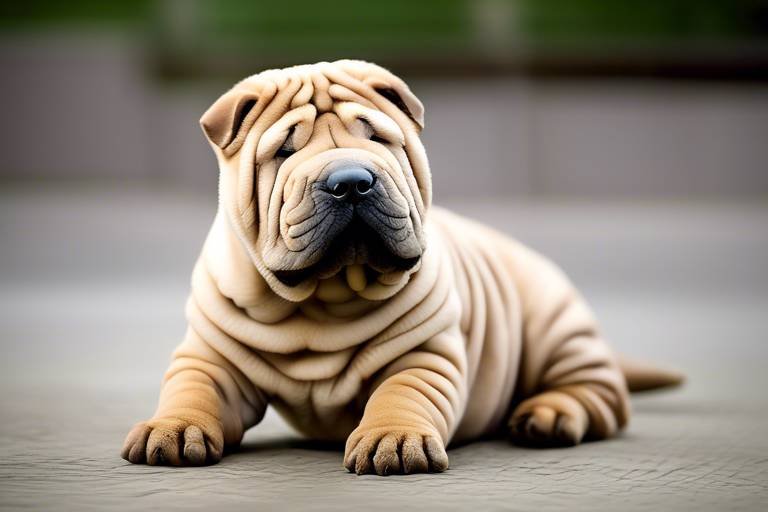Understanding the Calm Temperament of Basset Hounds
Basset Hounds, with their droopy ears and soulful eyes, are often the embodiment of calmness in the canine world. Their unique temperament makes them not just pets, but cherished family members. So, what is it about these lovable dogs that contributes to their gentle demeanor? Let’s dive into the characteristics that define the Basset Hound's personality, revealing why they are such a perfect fit for families and individuals alike.
First and foremost, Basset Hounds are known for their laid-back attitude. Unlike some breeds that are constantly on the go, Basset Hounds prefer a more relaxed lifestyle. They enjoy lounging around the house, soaking up the sun, and napping on the couch. This calmness is not just a personality trait; it’s deeply rooted in their history as scent hounds. Originally bred for tracking game, their job required patience and a steady demeanor, traits they still carry with them today.
Another significant aspect of their temperament is their affectionate nature. Basset Hounds thrive on companionship and are known to form strong bonds with their families. They are incredibly loyal and often seek out human interaction, making them excellent companions for both children and adults. Their gentle disposition means they can handle the rambunctiousness of kids, while also being a comforting presence for those who may need a little emotional support.
Moreover, Basset Hounds are generally friendly and sociable. They tend to get along well with other pets, which is a crucial factor for families with multiple animals. Their calm temperament allows them to navigate social situations with ease, making them a joy to have around. However, it’s important to remember that socialization plays a vital role in maintaining their friendly nature. Early exposure to various environments, people, and other pets helps reinforce their naturally calm and friendly disposition.
In essence, the Basset Hound's calm temperament stems from a combination of their genetic background, affectionate personality, and social nature. This breed is not just about being cute; they offer a unique blend of companionship and tranquility that many pet owners find irresistible. So, if you're considering adding a Basset Hound to your family, be prepared for a loyal friend who embodies calmness and love.
- Are Basset Hounds good with children? Yes, Basset Hounds are known for their gentle nature and typically get along well with children.
- Do Basset Hounds require a lot of exercise? While they are calm dogs, regular exercise is important to keep them healthy and happy.
- How can I ensure my Basset Hound remains calm? Consistent training, socialization, and a comfortable home environment can help maintain their calm temperament.
- What health issues should I be aware of? Basset Hounds can be prone to obesity and ear infections, so regular vet check-ups are essential.
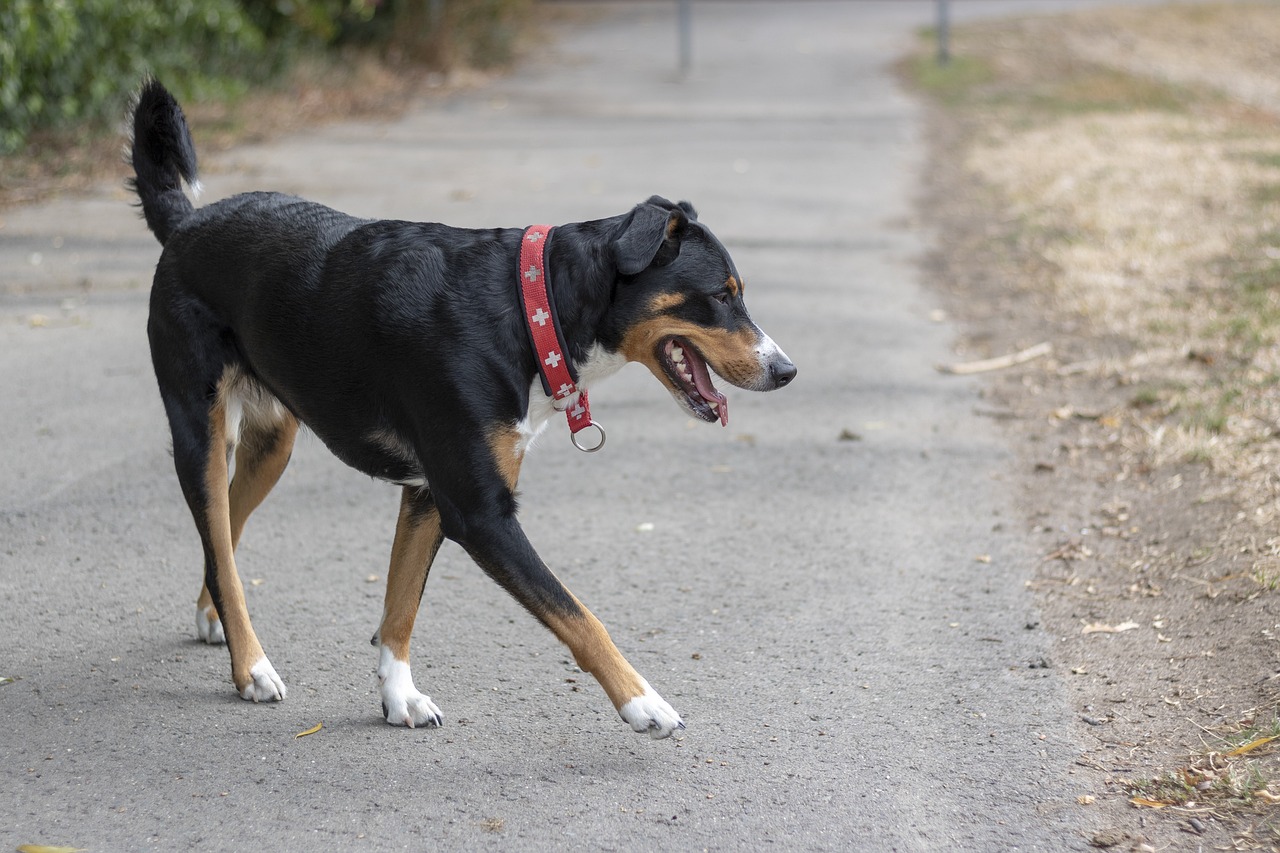
The Origins of the Basset Hound
Basset Hounds have a fascinating history that dates back to medieval France, where they were originally bred for hunting small game, particularly rabbits and hares. The name "Basset" itself is derived from the French word "bas," meaning "low," which perfectly describes their short stature and long body. This unique physical characteristic was not just for show; it allowed them to navigate through dense underbrush while tracking scents. Imagine a little detective on four legs, sniffing out clues in the wild!
These dogs were highly valued by hunters for their keen sense of smell, which is one of the best in the canine world. Their ability to track scents from great distances made them indispensable companions during hunting expeditions. Over time, Basset Hounds became more than just hunting dogs; they evolved into beloved family pets, known for their affectionate and gentle nature. Their calm demeanor and friendly personality traits have made them a favorite among families and individuals alike.
As Basset Hounds made their way across Europe, they captured the hearts of many. They were brought to England in the 19th century, where they gained popularity among the aristocracy. In fact, Queen Victoria was known to be a fan of the breed, further solidifying their status as a cherished companion. This royal endorsement helped shape their reputation as not just working dogs, but also as loyal family members.
Today, Basset Hounds are recognized for their unique temperament, which is a blend of their hunting instincts and their affectionate nature. Their history as hunters contributes to their calm and patient demeanor, allowing them to coexist harmoniously with families and other pets. Understanding the origins of the Basset Hound provides valuable insight into their behavior and personality traits, helping owners appreciate the gentle giants they have in their homes.
- What is the average lifespan of a Basset Hound? Basset Hounds typically live between 10 to 12 years, depending on their overall health and care.
- Are Basset Hounds good with children? Yes! Basset Hounds are known for their gentle and patient nature, making them great companions for kids.
- How much exercise do Basset Hounds need? While they are calm dogs, regular exercise is essential. Aim for at least 30 minutes of moderate activity each day.
- Do Basset Hounds shed a lot? Basset Hounds do shed, but regular grooming can help manage it. Their short, dense coat requires minimal maintenance.
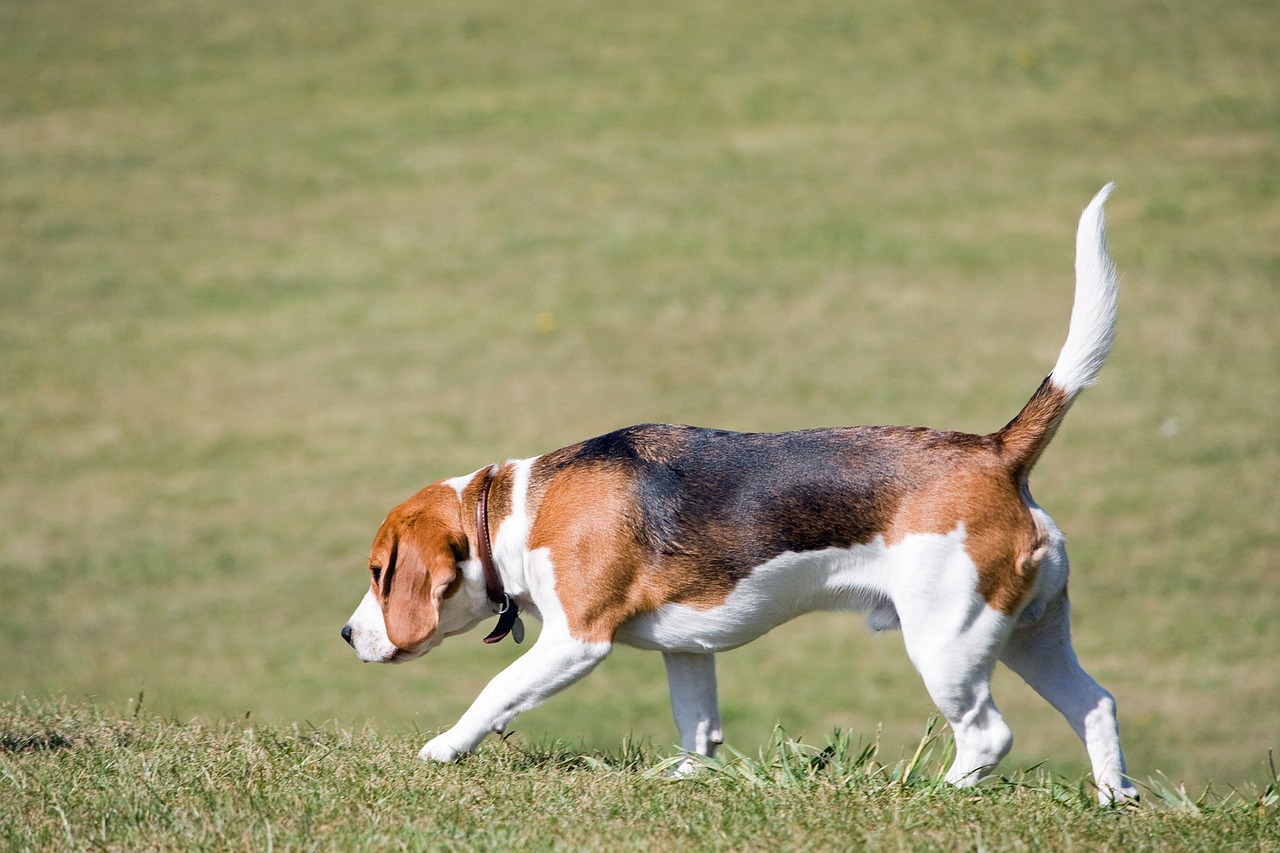
Physical Characteristics and Their Influence
Basset Hounds are not your average dogs; their physical characteristics significantly influence their temperament and behavior. With their unique body structure, short legs, and long bodies, Basset Hounds have an unmistakable appearance that often evokes smiles and affection. These features are not just for show; they play a crucial role in how these dogs interact with the world around them. Imagine a low-riding vehicle that glides smoothly along the road—this is akin to how Basset Hounds navigate their environment with a calm and deliberate approach.
Their facial expressions are another aspect that contributes to their charm. Basset Hounds have expressive eyes and droopy ears that often convey a sense of curiosity and gentleness. This distinct facial structure allows them to communicate their feelings effectively, be it joy, curiosity, or even a touch of stubbornness. Owners often find themselves captivated by their soulful gaze, which can instantly melt hearts and foster a deep bond between the dog and its family.
The Basset Hound's body structure is a fascinating combination of functionality and aesthetics. Their short legs and elongated bodies are designed for a specific purpose: hunting. Originally bred for tracking scents, these dogs have a low center of gravity that allows them to move through dense underbrush with ease. However, this unique anatomy also contributes to their laid-back demeanor. Unlike more energetic breeds that dash around, Basset Hounds prefer to take their time, often opting for a leisurely stroll rather than a sprint. This relaxed approach to life enhances their calm temperament, making them ideal companions for families looking for a gentle and easygoing pet.
Understanding a Basset Hound's facial expressions can greatly improve the relationship between the dog and its owner. Their expressive faces tell a story—whether they are happy, content, or seeking attention. For instance, when a Basset Hound tilts its head and raises its ears, it often indicates curiosity or interest in what's happening around them. By learning to read these cues, owners can respond appropriately, fostering a stronger bond and ensuring that their pet feels understood and loved.
The movement patterns of Basset Hounds are as distinctive as their appearance. Known for their slow and deliberate movements, these dogs often appear to be in no rush to get anywhere. This behavior is not laziness; rather, it reflects their calm nature and thoughtful approach to exploring their surroundings. When they walk, they do so with a sense of purpose, often stopping to sniff and investigate new scents. This methodical way of moving allows them to engage fully with their environment while maintaining their relaxed demeanor.
In summary, the physical characteristics of Basset Hounds are not merely superficial traits; they play a significant role in shaping their temperament and behavior. From their unique body structure to their expressive faces and deliberate movements, these features all contribute to the calm and affectionate nature that makes Basset Hounds such beloved companions. Understanding these characteristics can help owners appreciate their pets even more and create an environment where they can thrive.
- What are the typical physical traits of a Basset Hound? Basset Hounds are known for their long bodies, short legs, droopy ears, and expressive faces.
- Do Basset Hounds require a lot of exercises? While they are naturally calm, regular exercise is important to maintain their health and happiness.
- How can I train my Basset Hound effectively? Using positive reinforcement techniques and maintaining consistency in training is key to nurturing their calm temperament.
- Are Basset Hounds good with children and other pets? Yes, Basset Hounds are typically gentle and friendly, making them great companions for kids and other animals.
Body Structure and Behavior
The Basset Hound is easily recognizable due to its distinctive body structure, which plays a significant role in shaping its behavior and overall temperament. With short, sturdy legs and a long, low-slung body, these dogs are not built for speed but rather for comfort and a relaxed lifestyle. This unique physique gives them a charming appearance that many find endearing, but it also influences how they interact with their surroundings.
One of the most fascinating aspects of the Basset Hound's body structure is how it affects their movement. Rather than the energetic sprinting typical of many breeds, Basset Hounds tend to move at a leisurely pace. Their slow and deliberate movements are not just a reflection of their physical attributes but also an embodiment of their calm temperament. This laid-back approach to life means that they are less likely to engage in hyperactive behavior, making them ideal companions for families seeking a more tranquil pet.
Moreover, the Basset Hound's body structure encourages a particular style of play. While they may not be the most agile dogs, their playful nature still shines through. They enjoy games that allow them to use their keen sense of smell and engage their minds, such as hide-and-seek or scent trails. This can be a delightful way to bond with your Basset Hound, as their inquisitive nature drives them to explore and investigate their environment, often leading to amusing antics that can entertain the whole family.
In terms of behavior, Basset Hounds are known for their gentle disposition. Their calm demeanor makes them less likely to exhibit aggressive behaviors, which is a significant advantage, especially in multi-pet households. They often get along well with other dogs and pets, thanks in part to their easygoing nature. However, it’s essential to remember that early socialization is crucial in nurturing these traits. Exposing Basset Hounds to various environments, people, and other animals during their formative months can help reinforce their naturally friendly disposition.
To further illustrate how their body structure influences their behavior, consider the following table:
| Body Feature | Behavioral Influence |
|---|---|
| Short Legs | Slower movement; less inclined to jump or run excessively |
| Long Body | Comfortable lounging; prefers relaxation over strenuous activity |
| Large Ears | Enhanced hearing; more aware of surroundings, leading to a curious nature |
| Heavy Build | Less likely to engage in aggressive play; promotes gentle interactions |
In summary, the Basset Hound's body structure is not just about looks; it profoundly influences their behavior and temperament. Their unique physical traits contribute to a calm, friendly, and playful nature that makes them beloved companions. Understanding these characteristics can help owners create an environment that respects and nurtures the Basset Hound's innate disposition, ensuring a happy and fulfilling life together.
- Are Basset Hounds good with children? Yes, their gentle temperament makes them excellent companions for children.
- How much exercise do Basset Hounds need? While they are calm, they still require regular exercise to maintain their health, typically around 30 minutes a day.
- Do Basset Hounds shed a lot? They do shed, but regular grooming can help manage this and keep their coat healthy.
- What is the average lifespan of a Basset Hound? Basset Hounds typically live between 10 to 12 years, with proper care and attention.
Facial Expressions and Communication
Basset Hounds are not just adorable; they are also masters of communication, and their facial expressions play a significant role in how they convey their feelings. With their droopy ears and soulful eyes, these dogs have a way of expressing emotions that can melt anyone's heart. Have you ever noticed how a Basset Hound can look both curious and confused at the same time? Their unique facial structure allows for a range of expressions that tell you exactly what they are feeling.
For instance, when a Basset Hound is happy, you might see their eyes widen, and their ears perk up. This is a clear sign of excitement and joy. On the other hand, if they are feeling anxious or unsure, their eyes may become slightly squinted, and their ears might droop even lower. Understanding these subtle changes can help owners respond appropriately to their furry friends. It's almost like having a conversation without words!
To further illustrate how Basset Hounds communicate through their facial expressions, here are some common signs to look out for:
- Relaxed Ears: When their ears hang loosely, it indicates that they are calm and comfortable.
- Wagging Tails: Although not a facial expression, a wagging tail combined with a relaxed face shows happiness.
- Wide Eyes: If their eyes are wide open, it usually means they're alert and interested in their surroundings.
- Frowning or Furrowed Brows: This can indicate confusion or concern, signaling that something might be off.
Moreover, these expressions are not just for show; they serve practical purposes. For example, a Basset Hound might use their sad puppy eyes to elicit sympathy from their owners, especially when they're hoping for a treat or a bit of extra attention. This ability to communicate their needs effectively is one of the many reasons why they are such beloved companions.
In addition to facial expressions, Basset Hounds also rely on body language to communicate their feelings. A wagging tail, a playful stance, or even a gentle nudge can all convey different messages. It's essential for owners to pay attention to these cues, as they help strengthen the bond between dog and owner. After all, understanding your Basset Hound's emotions is crucial for fostering a loving and supportive environment.
In summary, the facial expressions and communication styles of Basset Hounds are vital aspects of their temperament. By being attentive to their emotional cues, owners can ensure that their furry friends feel understood and loved. So the next time you see your Basset Hound giving you those big, soulful eyes, you'll know exactly what they're trying to say!
- What are common facial expressions of Basset Hounds? Basset Hounds often display a range of expressions, including relaxed ears when calm, wide eyes when alert, and droopy features when feeling sad or anxious.
- How can I improve communication with my Basset Hound? Pay attention to their facial expressions and body language. Responding to their cues can strengthen your bond and help them feel understood.
- Do Basset Hounds use body language to communicate? Yes, they do! Their body language, including tail wagging and playful stances, is crucial for expressing their feelings.
Movement Patterns
Basset Hounds are known for their unique and distinctive . Unlike many other dog breeds that might dart around with boundless energy, Basset Hounds tend to embody a more laid-back approach to life. Their short legs and elongated bodies contribute to a walking style that is both deliberate and somewhat comical. It's as if they have mastered the art of taking their time, savoring each step as they explore their surroundings.
This calm demeanor is not just a personality trait; it significantly influences how they interact with the world around them. When you see a Basset Hound moving, you might notice that they often appear to be in a state of relaxed observation. They might take their time sniffing around, pausing frequently to take in the scents that intrigue them. This slow, methodical exploration is part of what makes them so endearing. It’s like watching a nature documentary where the subject is a gentle giant, taking its time to enjoy the little things in life.
Moreover, their movement patterns can also affect their social interactions. When meeting other dogs or people, Basset Hounds often approach with a calm and non-threatening demeanor, which helps to ease potential tension. Their slow and deliberate movements can convey a sense of confidence and friendliness, making them approachable companions. This is particularly beneficial in family settings, where their gentle nature can foster positive interactions with children and other pets.
In contrast to breeds that may jump and bounce around, the Basset Hound's relaxed movement can be likened to that of a wise old sage, taking in the world with a sense of tranquility. This characteristic not only enhances their charm but also reinforces their role as loving family members. Owners often find that their Basset Hounds are content to lounge around the house or accompany them on leisurely walks, embodying the essence of a calm, affectionate companion.
To sum it up, the movement patterns of Basset Hounds are a beautiful reflection of their overall temperament. Their slow and deliberate approach to life not only makes them unique but also contributes to their calm and friendly nature. By understanding these patterns, owners can better appreciate what makes Basset Hounds such wonderful companions.
- Are Basset Hounds good with children?
Basset Hounds are known for their gentle temperament, making them excellent companions for children. Their calm demeanor and patience generally allow them to interact well with kids. - How much exercise do Basset Hounds need?
While they are naturally calm, Basset Hounds still require regular exercise to maintain their health. Short, leisurely walks and playtime are usually sufficient to keep them happy. - Do Basset Hounds get along with other pets?
Yes, Basset Hounds typically have a friendly disposition and can get along well with other pets, especially if they are socialized properly from a young age. - What are common health issues in Basset Hounds?
Basset Hounds are prone to certain health issues, such as obesity and ear infections. Regular vet check-ups can help monitor and manage these concerns.
Socialization and Temperament
Socialization is a critical aspect of raising a well-adjusted Basset Hound. These lovable dogs are naturally calm and friendly, but their temperament can be significantly influenced by their experiences during their formative years. Just like a child learns to navigate the world through interactions with others, Basset Hounds thrive when they are exposed to a variety of environments, people, and other animals. The more they experience, the more confident and comfortable they become in different situations.
When introducing a Basset Hound to new experiences, it’s important to keep a few key points in mind:
- Start Early: The earlier you begin socializing your Basset Hound, the better. Puppies are like sponges, absorbing everything around them. Introduce them to different sounds, sights, and smells to help them adapt.
- Positive Experiences: Ensure that new encounters are positive and stress-free. Use treats and praise to create a happy association with new experiences, whether it’s meeting new people or other pets.
- Variety is Key: Expose your Basset Hound to a range of environments—parks, busy streets, and quiet homes. This variety helps them learn how to behave in different settings, which is crucial for their development.
Socialization not only influences a Basset Hound's temperament but also enhances their ability to interact with family members, including children and other pets. A well-socialized Basset Hound is generally more relaxed and less anxious, making them a joy to have around. They tend to be gentle and patient, which is why they often form strong bonds with kids and other animals. Their calm demeanor makes them excellent companions, but without proper socialization, they might become shy or overly reserved.
Moreover, Basset Hounds are known for their unique personalities. Each dog has its own quirks, and socialization helps bring out the best in them. A well-rounded Basset will often display a curious nature, showing interest in new friends and experiences. This curiosity can lead to delightful interactions and a happier life for both the dog and their family.
In conclusion, socialization is not just a phase; it’s an ongoing process that contributes significantly to a Basset Hound's temperament. By investing time and effort in socializing your dog, you’re not only nurturing a calm and friendly companion but also enriching their life. So, take your Basset Hound out and let them explore the world—after all, a well-socialized dog is a happy dog!
Q1: How can I socialize my Basset Hound effectively?
A1: Start by exposing your Basset Hound to different environments, people, and pets gradually. Use positive reinforcement techniques like treats and praise to create positive associations with new experiences.
Q2: At what age should I start socializing my Basset Hound?
A2: It's best to start socializing your Basset Hound as a puppy, ideally between 3 to 14 weeks of age, as they are more receptive to new experiences during this critical period.
Q3: What should I do if my Basset Hound seems anxious around new people?
A3: If your Basset Hound shows signs of anxiety, take a step back and allow them to observe from a distance. Gradually introduce them to new people, rewarding calm behavior with treats and praise.
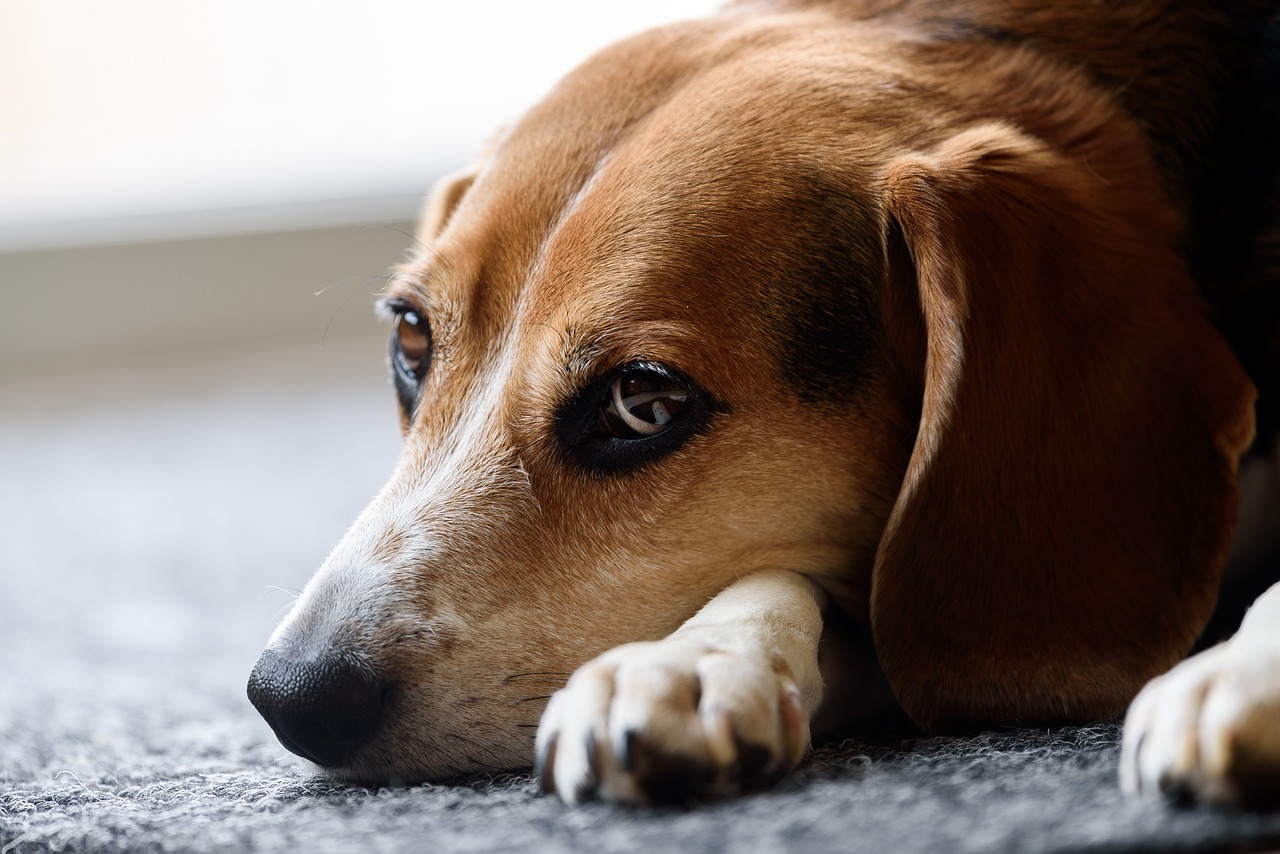
Training a Calm Basset Hound
Training a Basset Hound, known for their calm demeanor, can be a rewarding experience for both the dog and the owner. These lovable canines may not be the most energetic breed, but they are intelligent and eager to please, making them highly trainable when approached correctly. It's important to remember that while they might take their time to respond, patience and consistency are key to unlocking their full potential.
One of the most effective methods for training Basset Hounds is through positive reinforcement. This approach involves rewarding your dog with treats, praise, or playtime whenever they successfully follow a command or exhibit good behavior. For instance, if your Basset Hound sits on command, shower them with praise and a tasty treat. This not only encourages them to repeat the behavior but also strengthens the bond between you and your furry friend. The more positive experiences they have during training sessions, the more likely they are to remain calm and engaged.
Another critical aspect of training is consistency. Establishing a structured routine helps reinforce your Basset Hound's understanding of commands and expectations. For example, if you consistently use the same command for "sit," your dog will begin to associate that word with the action. Consistency in your tone, body language, and rewards will create a sense of security for your dog, making them feel more confident and relaxed in their learning environment.
Additionally, it's beneficial to incorporate short training sessions into your daily routine. Basset Hounds can become easily distracted, so keeping training sessions brief—around 5 to 10 minutes—can help maintain their focus. You can gradually increase the duration as they become more accustomed to the training. Remember to end each session on a positive note, even if it means simply enjoying some quiet time together after a few successful commands.
Training should also include socialization with other dogs and people. Exposing your Basset Hound to various environments, sounds, and experiences will help them become well-adjusted and calm. This can be done through organized playdates, visits to dog parks, or simply taking them for walks in busy areas. The more experiences they have, the less anxious they will be in new situations.
Lastly, don’t forget to incorporate playtime into your training routine! Engaging in fun activities not only reinforces their training but also allows your Basset Hound to express their natural instincts. Consider using toys that stimulate their minds, like puzzle toys, which can also help keep them calm and focused.
- How long does it take to train a Basset Hound? Training duration varies, but with consistent effort, you can expect to see progress within a few weeks.
- Are Basset Hounds difficult to train? They can be a bit stubborn, but with patience and positive reinforcement, they can learn effectively.
- What are the best rewards for training? Treats, praise, and playtime are excellent rewards to motivate your Basset Hound during training.
Positive Reinforcement Techniques
When it comes to training your Basset Hound, utilizing is not just a method; it’s a philosophy that can transform your relationship with your furry friend. Imagine a world where your dog learns commands and behaviors not through fear or punishment, but through love and encouragement. That’s the magic of positive reinforcement! This approach focuses on rewarding desirable behaviors, which makes your Basset Hound eager to learn and participate.
So, how does this work in practice? It’s all about timing and consistency. When your Basset Hound successfully follows a command, immediately reward them with a treat, praise, or even a favorite toy. This immediate feedback helps them associate the action with a positive outcome, making it more likely that they’ll repeat the behavior in the future. For example, if your Basset Hound sits on command, shower them with affection and a tasty treat right away. This will not only make them happy but also reinforce the behavior you want to see.
Moreover, Basset Hounds are known for their gentle and affectionate nature, which means they thrive on positive interactions. By using techniques such as clicker training, where a click sound marks the desired behavior followed by a reward, you can create a fun and engaging learning environment. This method is particularly effective for Basset Hounds, as their laid-back temperament allows them to absorb training without feeling rushed or stressed.
Here’s a quick overview of some effective positive reinforcement techniques that can work wonders for your Basset Hound:
- Verbal Praise: Use an enthusiastic tone to praise your dog whenever they do something right. Your excitement will be contagious!
- Treat Rewards: Keep a stash of their favorite treats handy for those training sessions. Just a small piece can go a long way.
- Playtime: Incorporate their favorite game or toy as a reward. This not only reinforces good behavior but also strengthens your bond.
Remember, the key to successful training lies in consistency. Establish a routine that allows your Basset Hound to understand what is expected of them. If you’re consistent with your commands and the rewards you provide, your dog will feel more secure and confident in their ability to please you.
In conclusion, positive reinforcement is more than just a training method; it’s a way to build a loving and trusting relationship with your Basset Hound. By focusing on their strengths and rewarding them for good behavior, you’re not only helping them learn but also ensuring that their calm temperament shines through in every interaction.
Q1: How long should training sessions be for my Basset Hound?
A1: Training sessions should be short and engaging, ideally around 5 to 10 minutes. Basset Hounds can lose interest quickly, so keeping it fun and varied is key.
Q2: What if my Basset Hound doesn’t respond to positive reinforcement?
A2: If your Basset Hound isn’t responding, try switching up the rewards. Some dogs may prefer treats, while others may respond better to playtime or affection.
Q3: How can I tell if my Basset Hound is enjoying training?
A3: Look for signs of excitement, such as wagging tails, playful behavior, or eager responses to commands. If they seem relaxed and happy, you’re on the right track!
Consistency in Training
When it comes to training your Basset Hound, consistency is key. These lovable dogs thrive on routine, and establishing a predictable training regimen can significantly enhance their learning experience. Imagine trying to learn a new skill where the rules change every day; it would be confusing, right? That's exactly how a Basset Hound feels without consistency in training. By maintaining a structured approach, you not only help your furry friend understand what is expected of them, but you also build their confidence, making them feel secure in their environment.
One effective way to ensure consistency is by using the same commands and cues for specific behaviors. For instance, if you choose to use the word "sit" for the action of sitting, stick with that word every time. If you switch it up and sometimes say "down" or "take a seat", your Basset Hound will become confused and may not respond as well. This principle applies to all commands, whether it's for walking on a leash, coming when called, or staying put.
Moreover, involving all family members in the training process is vital. If one person uses a different command or method, it can create mixed signals for your dog. To avoid this, consider having a family meeting to discuss the training approach you will all follow. This way, everyone is on the same page, and your Basset Hound will receive consistent messages about what is expected of them.
Another important aspect of consistency is the reinforcement of positive behaviors. Whenever your Basset Hound performs the desired action, reward them immediately with a treat, praise, or playtime. This helps them associate good behavior with positive outcomes. However, if they misbehave, it's crucial to remain calm and avoid harsh reprimands. Instead, redirect their attention to a more appropriate behavior and reward them when they comply. This approach not only keeps the training process positive but also reinforces the calm temperament that Basset Hounds are known for.
Finally, remember that training is a lifelong journey. Basset Hounds, like all dogs, will benefit from ongoing reinforcement of their training throughout their lives. Regular practice not only keeps their skills sharp but also strengthens the bond between you and your pet. So, whether it’s a quick refresher on basic commands or introducing new tricks, make consistency a part of your routine, and watch your Basset Hound thrive!
- How often should I train my Basset Hound?
It's best to have short, regular training sessions of about 5-10 minutes, several times a day, to keep them engaged without overwhelming them. - Can I train my Basset Hound at home?
Absolutely! Home training is effective, especially with a consistent routine and positive reinforcement. - What if my Basset Hound doesn't respond to commands?
Be patient and consistent. If they struggle, try to simplify the command or increase the reward to motivate them. - Is it too late to train an older Basset Hound?
No, it's never too late! Older dogs can learn new commands and behaviors with the right approach and patience.
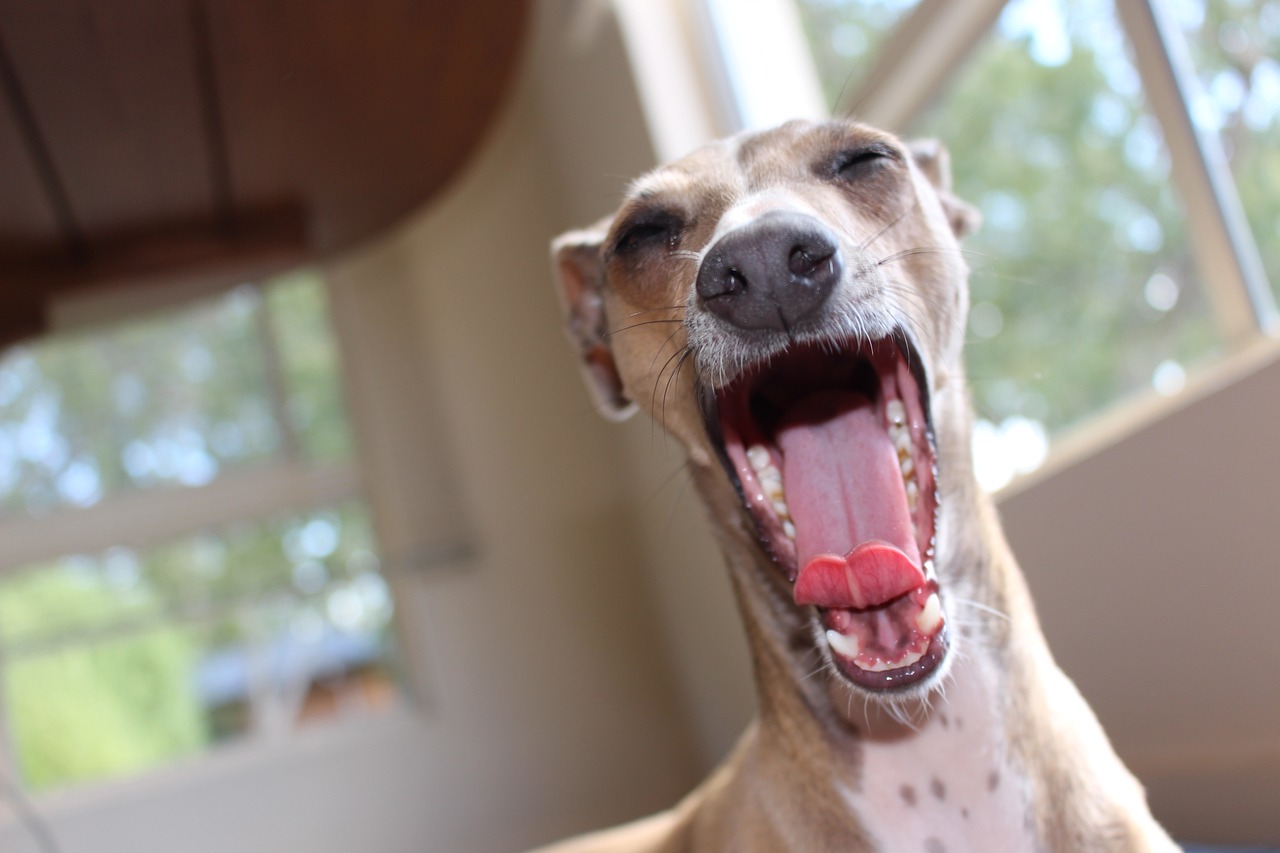
The Importance of Regular Exercise
Regular exercise is not just a luxury for Basset Hounds; it’s a necessity that plays a crucial role in their overall health and well-being. Although these adorable dogs are known for their calm and laid-back demeanor, they still require an appropriate amount of physical activity to stay fit and happy. Imagine a Basset Hound lounging on the couch all day—while it might seem cute, too much inactivity can lead to a host of health issues. Just like us, they need to move to keep their bodies and minds in good shape.
Finding the right balance of exercise is essential. Basset Hounds are not the most energetic breed, but they still enjoy leisurely walks and playtime. A well-structured exercise routine can involve a mix of short walks, gentle play sessions, and mental stimulation. This not only helps them burn off excess energy but also keeps their minds sharp. Engaging in outdoor activities allows them to explore their surroundings, sniff out interesting scents, and socialize with other dogs, enhancing their overall quality of life.
To help you understand the exercise needs of Basset Hounds better, consider the following table that outlines their typical daily exercise requirements:
| Age Group | Exercise Duration | Recommended Activities |
|---|---|---|
| Puppies (up to 1 year) | 30-60 minutes | Short walks, playtime, basic training |
| Adults (1-7 years) | 60 minutes | Long walks, fetch, agility exercises |
| Senior (7+ years) | 30-45 minutes | Gentle walks, light play, mental stimulation games |
As you can see, the exercise needs vary by age, but the goal is to keep them active without overexerting them. Remember, Basset Hounds are prone to obesity, so regular exercise is vital in preventing weight-related health issues. A healthy weight not only contributes to their longevity but also helps maintain their calm temperament, allowing them to enjoy life to the fullest.
Moreover, outdoor activities provide more than just physical benefits. They also offer mental stimulation. Activities like sniffing around in the grass or exploring new trails can engage a Basset Hound’s natural instincts, keeping them mentally sharp and satisfied. This, in turn, can lead to a calmer dog at home, as they’ve been able to expend their energy in a positive way.
In summary, regular exercise is essential for Basset Hounds to maintain their health and calm temperament. By integrating enjoyable activities into their daily routine, you’ll ensure they lead a happy, balanced life. So, grab that leash and head outside—your Basset Hound will thank you with wagging tails and happy barks!
- How much exercise does a Basset Hound need daily?
Typically, Basset Hounds require around 30 to 60 minutes of exercise each day, depending on their age and energy levels.
- Can Basset Hounds participate in dog sports?
Yes! While they may not be the fastest, Basset Hounds can enjoy activities like agility training and scent work, which cater to their natural abilities.
- What are some good activities for Basset Hounds?
Short walks, play sessions, and mental games like puzzle toys are excellent for keeping Basset Hounds engaged and active.
Finding the Right Exercise Routine
Finding the right exercise routine for your Basset Hound is essential for maintaining their health and happiness while respecting their naturally calm demeanor. Unlike some high-energy breeds that require intense workouts, Basset Hounds thrive on moderate, low-impact activities that align with their relaxed personality. Think of it as a gentle stroll through the park rather than a sprint to the finish line!
One of the best ways to structure an exercise routine is to incorporate short walks into your daily schedule. These walks should last about 20 to 30 minutes, ideally twice a day, allowing your Basset Hound to explore their surroundings at a leisurely pace. This not only keeps them physically fit but also mentally stimulated as they sniff around and take in the world around them. Remember, Basset Hounds are scent hounds, so they love to follow their noses!
In addition to walks, consider including playtime in your routine. Engaging in gentle games of fetch or tug-of-war can be a fun way to bond with your pet while also providing them with some exercise. Just keep in mind that Basset Hounds may not be as enthusiastic about running after a ball as other breeds; instead, opt for activities that allow them to take their time and enjoy the moment.
Another great option is to explore canine enrichment activities. This could include puzzle toys or scent games that challenge their minds. These activities are particularly beneficial because they cater to the Basset Hound's natural instincts while also providing a low-impact way to keep them engaged. You might even create a mini obstacle course in your backyard, allowing them to navigate through it at their own pace!
To ensure you’re hitting the right balance, it’s crucial to monitor your Basset Hound’s energy levels and adjust the routine as needed. If they seem tired or disinterested, it might be time to dial back the exercise intensity. On the flip side, if they’re bouncing around with excitement, consider extending the playtime a bit. Just like us, every dog has their own unique preferences and energy levels!
In summary, finding the right exercise routine for your Basset Hound involves a mix of short walks, gentle playtime, and mental stimulation. By tailoring activities to suit their calm temperament, you’ll not only keep them healthy but also strengthen the bond you share. So, grab that leash, and let’s get moving—at a Basset Hound's pace!
- How much exercise does a Basset Hound need daily? Basset Hounds typically require about 30 to 60 minutes of exercise each day, divided into short walks and play sessions.
- Can Basset Hounds participate in dog sports? While they may not be the fastest runners, Basset Hounds can enjoy activities like scent work, agility (at their own pace), and obedience training.
- What are some signs my Basset Hound is getting enough exercise? A well-exercised Basset Hound will be relaxed and content, showing no signs of hyperactivity or destructive behavior.
Benefits of Outdoor Activities
Engaging in outdoor activities with your Basset Hound is not just a fun way to spend time together; it is also essential for their overall well-being. These gentle giants may have a calm demeanor, but they still require a good balance of physical activity to maintain their health. Taking your Basset Hound outside offers a plethora of benefits that go beyond just exercise. It provides them with mental stimulation and strengthens the bond between you and your furry friend.
First and foremost, outdoor activities promote physical health. Just like humans, dogs need regular exercise to keep their weight in check and their muscles toned. Basset Hounds, with their unique body structure, may not be the fastest dogs on the block, but they can still enjoy leisurely walks or gentle play sessions. Regular exercise helps prevent obesity, which is a common issue for this breed due to their propensity to gain weight easily.
Moreover, outdoor time allows Basset Hounds to explore their environment, which is crucial for their mental stimulation. The sights, sounds, and smells of the great outdoors engage their senses and keep their minds sharp. Imagine the joy of watching your Basset Hound sniffing around, tail wagging, as they discover new scents. This exploration is vital for their emotional health and can significantly reduce boredom-related behaviors, such as chewing or excessive barking.
Outdoor activities also serve as an excellent opportunity for socialization. Meeting other dogs and people during walks or at parks helps Basset Hounds develop their social skills and reinforces their naturally friendly disposition. These interactions can teach them how to behave appropriately in various situations, which is essential for their overall temperament.
Incorporating outdoor activities into your routine can also enhance your Basset Hound's mood. Exercise releases endorphins, the 'feel-good' hormones, which can lead to a happier, more relaxed dog. You'll likely notice a difference in their behavior after a good romp outside—less anxiety, more playfulness, and an overall calm demeanor. It's like giving them a mini-vacation every time you step outside!
So, what are some great outdoor activities you can enjoy with your Basset Hound? Here are a few ideas:
- Leisurely Walks: Perfect for their short legs, a gentle stroll around the neighborhood can be both relaxing and enjoyable.
- Play Fetch: While they may not sprint like a Greyhound, Basset Hounds can still enjoy a game of fetch, especially if you keep the distance short.
- Dog Parks: Visiting a dog park allows for socialization and playtime with other dogs, which can be a fantastic way for them to expend energy.
- Hiking: If your Basset Hound is up for it, exploring nature trails can be a great adventure, offering new scents and sights.
In conclusion, incorporating outdoor activities into your Basset Hound's life is not just beneficial; it is essential. From maintaining their physical health to enhancing their emotional well-being, these activities play a crucial role in ensuring your furry friend leads a happy, fulfilling life. So grab that leash, head outside, and enjoy the great outdoors together!
Q: How much exercise does a Basset Hound need?
A: Basset Hounds typically require about 30 to 60 minutes of exercise each day, which can be broken down into walks, playtime, or other activities.
Q: Are Basset Hounds good with children?
A: Yes, Basset Hounds are known for their gentle temperament and usually get along well with children, making them great family pets.
Q: Can Basset Hounds live in apartments?
A: Absolutely! Basset Hounds adapt well to apartment living as long as they receive regular exercise and mental stimulation.
Q: What are common health issues in Basset Hounds?
A: Basset Hounds can be prone to obesity, ear infections, and certain genetic conditions. Regular vet check-ups can help monitor their health.
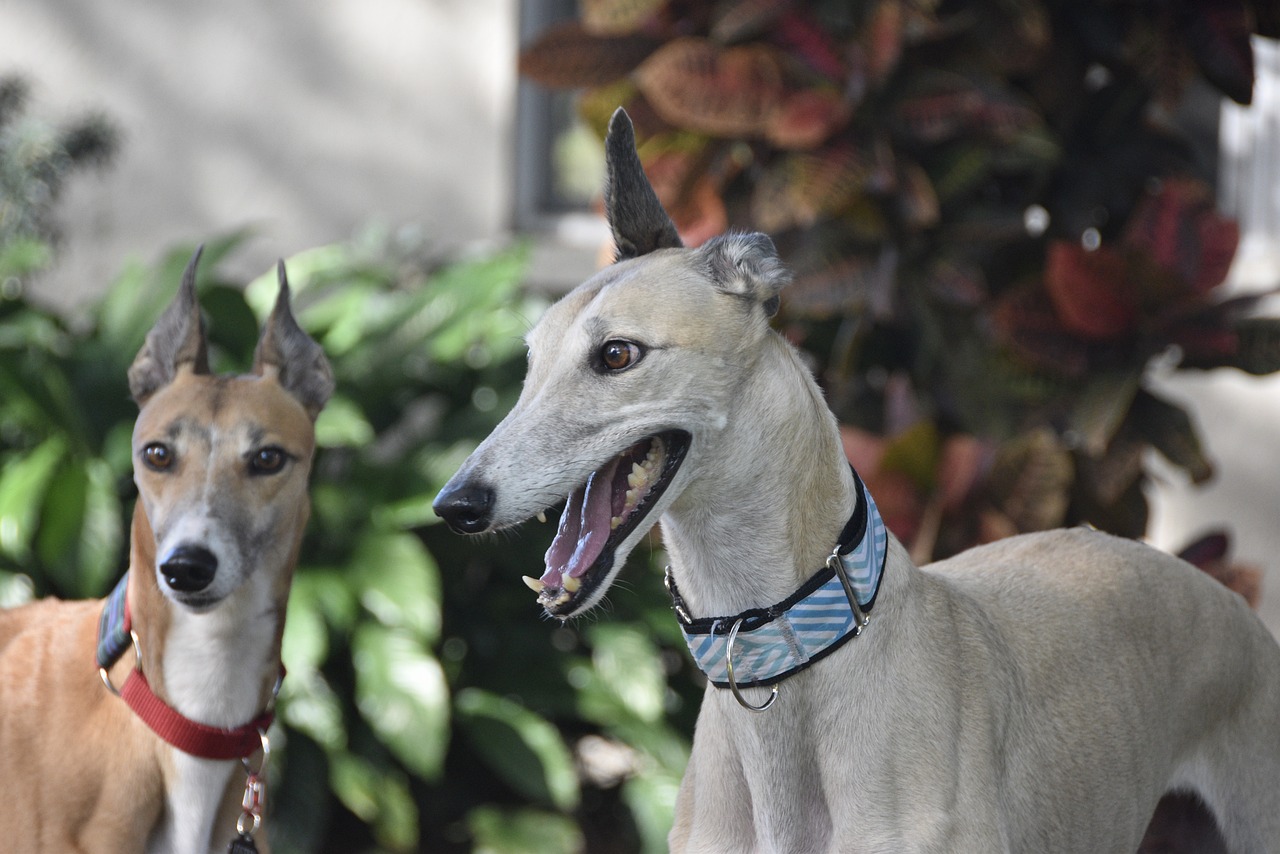
Living with a Basset Hound
Living with a Basset Hound can be one of the most rewarding experiences for any dog lover. Their calm temperament makes them exceptional companions, but there are a few considerations to keep in mind to ensure a happy household. First and foremost, it’s important to recognize that Basset Hounds thrive in environments that are both comfortable and nurturing. They love to lounge around, so providing them with cozy spaces, such as a soft bed or a designated corner of the living room, can make a world of difference in their happiness.
Additionally, these affectionate dogs enjoy being part of the family dynamic. They are known for their gentle nature, which makes them particularly great with children and other pets. However, to foster positive interactions, it’s crucial to supervise their playtime, especially with younger kids who may not understand how to interact gently. Establishing a routine that includes playtime can enhance their social skills and reinforce their calm demeanor.
When it comes to their daily life, Basset Hounds require a balance of activity and relaxation. Although they are not hyperactive, they do enjoy moderate exercise. A leisurely walk or a gentle game of fetch can keep them physically fit while respecting their laid-back nature. It’s essential to be mindful of their exercise needs, as they can be prone to weight gain if not properly exercised. Regular activities not only help maintain their health but also contribute to their overall well-being, allowing them to remain the calm, loving companions that they are.
Moreover, creating a peaceful home environment is vital. Basset Hounds are sensitive to their surroundings, so minimizing loud noises and chaotic activities can help them feel secure. Consider using soft music or calming scents to create a serene atmosphere. This not only benefits the dog but also enhances the overall mood of the household.
In summary, living with a Basset Hound is about understanding their unique needs and behaviors. By providing a comfortable home, engaging in gentle exercise, and fostering positive interactions with family members, you can ensure that your Basset Hound leads a happy and fulfilling life. Their calm temperament, paired with your love and care, creates a bond that is not only enjoyable but also deeply enriching.
- Do Basset Hounds get along with other pets?
Yes, Basset Hounds are generally friendly and sociable, making them great companions for other pets. - How much exercise do Basset Hounds need?
While they are not overly active, Basset Hounds benefit from daily walks and moderate playtime to maintain their health. - Are Basset Hounds good with children?
Absolutely! Their gentle nature makes them excellent companions for children. - What are common health issues for Basset Hounds?
Basset Hounds can be prone to obesity and ear infections, so regular vet check-ups are essential.
Creating a Comfortable Home Environment
Creating a comfortable home environment for your Basset Hound is not just about aesthetics; it’s about fostering a space where your furry friend can truly thrive. These dogs, known for their gentle nature and calm temperament, require a cozy and serene atmosphere to feel secure and relaxed. Start by designating a special area for your Basset Hound, such as a soft bed or a blanket in a quiet corner of the house. This space should be free from loud noises and disturbances, allowing your dog to retreat whenever they need a break.
Consider the layout of your home. Basset Hounds are not the most agile dogs due to their unique body structure, so it’s essential to ensure that your home is safe and accessible. Remove any obstacles that might hinder their movement, such as low furniture or clutter. Additionally, providing a few ramps or steps can help them navigate spaces more easily, especially if they love to lounge on the couch or bed with you.
Another crucial aspect of creating a comfortable environment is maintaining a consistent temperature. Basset Hounds can be sensitive to extreme heat or cold, so ensure your home is well-ventilated and climate-controlled. During the warmer months, consider providing a cool spot with a fan or air conditioning, while in winter, make sure their sleeping area is warm and cozy. You might even want to invest in doggy blankets or heated beds for those chilly nights.
Furthermore, consider the sensory elements of your home. Basset Hounds thrive in environments that engage their senses. You can enhance their comfort by incorporating calming scents, such as lavender or chamomile, which can create a soothing atmosphere. It’s also beneficial to have a variety of toys available for mental stimulation. Chew toys, puzzle feeders, and soft plush toys can keep your Basset Hound entertained and happy.
Lastly, don’t forget about the importance of routine. Basset Hounds are creatures of habit, and establishing a daily schedule for feeding, walks, and playtime can help them feel more secure. A predictable routine not only reinforces their calm demeanor but also strengthens the bond between you and your furry companion. Remember, a happy Basset Hound contributes to a happy home!
- What is the best type of bed for a Basset Hound? A soft, orthopedic bed that provides support for their joints is ideal.
- How often should I exercise my Basset Hound? Daily walks and playtime are essential, but keep activities moderate to match their energy levels.
- Are Basset Hounds good with children? Yes, they typically have a gentle temperament and can be great companions for kids.
- What should I feed my Basset Hound? A balanced diet tailored to their specific needs, considering their tendency to gain weight, is crucial.
- Do Basset Hounds require special grooming? Regular ear cleaning and occasional brushing are important to maintain their health and hygiene.
Interactions with Children and Other Pets
Basset Hounds are renowned for their gentle temperament, making them fantastic companions for families with children and other pets. Their calm demeanor allows them to interact with little ones in a way that is both safe and enjoyable. Imagine a playful child running around, and instead of barking or getting agitated, the Basset Hound simply wags its tail and watches with a curious yet relaxed expression. This characteristic enables them to be patient and tolerant, which is a significant advantage in a bustling household.
When it comes to children, Basset Hounds tend to be affectionate and loyal. They often form strong bonds with the kids in their family, engaging in gentle play and cuddling. However, it’s essential to teach children how to interact with dogs properly. For instance, reminding kids to approach the dog calmly and avoid pulling on its ears or tail can foster a positive relationship. In turn, the Basset Hound’s laid-back nature helps them handle the occasional roughhousing that can happen with excited children.
Additionally, Basset Hounds generally get along well with other pets, thanks to their social nature. They are not typically aggressive and can coexist peacefully with cats, other dogs, and even smaller animals. However, early socialization is crucial. Exposing a Basset Hound to various animals during their formative weeks can help them develop a friendly demeanor. It’s also helpful to supervise initial interactions to ensure everyone is comfortable. Here are some tips for fostering positive interactions:
- Introduce Slowly: Allow the pets to sniff each other while on a leash to gauge their reactions.
- Positive Reinforcement: Reward both the Basset Hound and the other pet with treats for calm behavior during introductions.
- Safe Spaces: Ensure each pet has a safe space to retreat to if they feel overwhelmed.
Ultimately, living with a Basset Hound can be a delightful experience for families. Their easy-going personality not only makes them great with children but also allows them to adjust well to the dynamics of a multi-pet household. By understanding their temperament and providing proper training and socialization, you can ensure that your Basset Hound will thrive in a loving environment, creating countless cherished memories with your family.
- Are Basset Hounds good with children? Yes, Basset Hounds are gentle and patient, making them excellent companions for children.
- How do Basset Hounds interact with other pets? They generally get along well with other pets, especially if socialized early.
- What should I teach my children about interacting with Basset Hounds? Teach children to approach calmly and to be gentle, avoiding pulling on ears or tails.
- Can Basset Hounds live with cats? Yes, many Basset Hounds can coexist peacefully with cats if introduced properly.
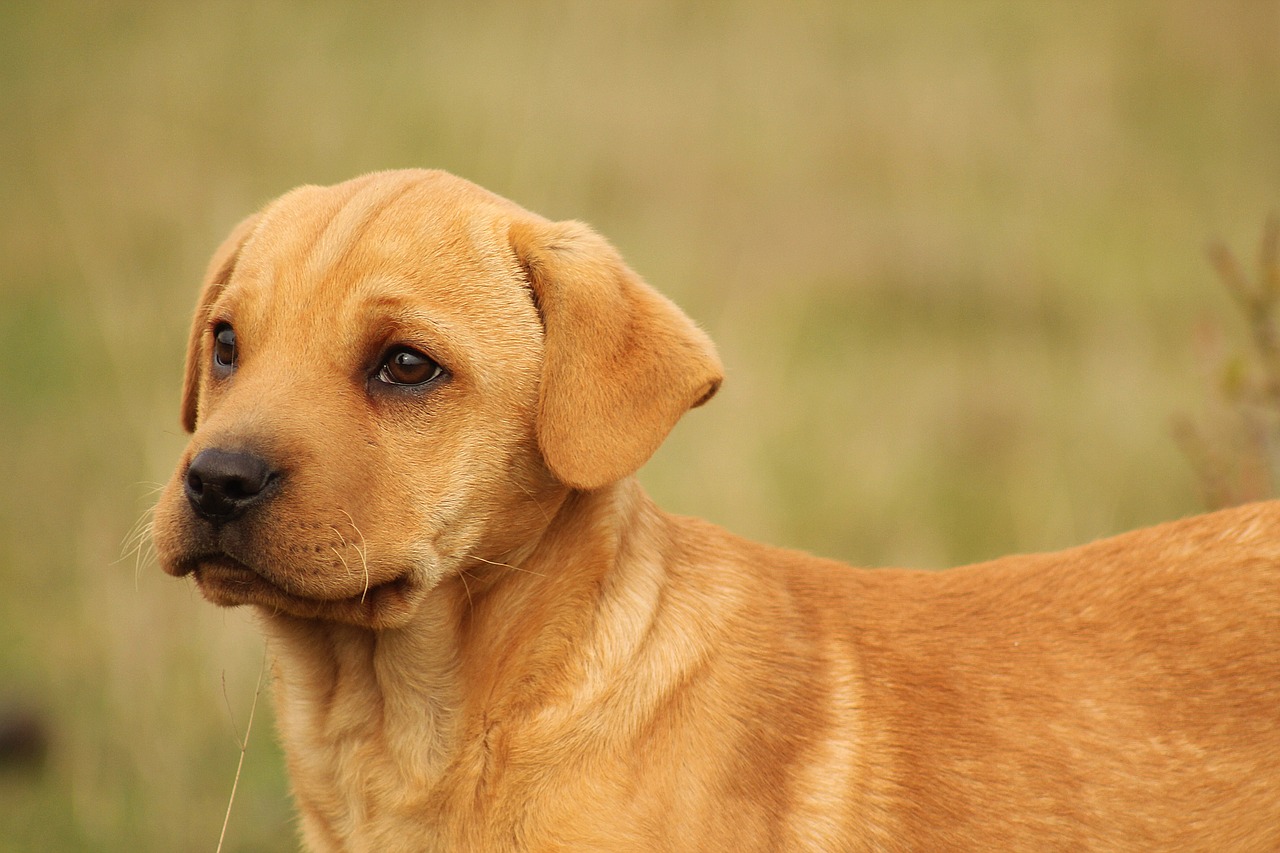
Health Considerations for Basset Hounds
Basset Hounds are known for their lovable personalities and calm demeanor, but like any breed, they come with their own set of health considerations that every owner should be aware of. Understanding these issues is crucial for ensuring that your furry friend remains happy and healthy throughout their life. One of the most common health issues that Basset Hounds face is obesity. Due to their laid-back nature, it can be easy for them to gain weight if not monitored closely. Obesity can lead to a myriad of health problems, including joint issues, diabetes, and heart disease. Therefore, maintaining a balanced diet and regular exercise is essential.
In addition to obesity, Basset Hounds are also prone to ear infections. Their long, floppy ears create a warm, moist environment that can harbor bacteria and yeast. Regular ear cleaning is vital to prevent infections. Owners should consult with their veterinarian about the best cleaning practices to keep those ears healthy.
Another health concern for Basset Hounds is hip dysplasia, a genetic condition where the hip joint doesn’t fit snugly into the hip socket. This can lead to arthritis and chronic pain. Regular vet check-ups can help monitor their joint health and catch any issues early on. It’s also important to provide them with a comfortable place to rest, as their joints need support, especially as they age.
To help owners better understand the common health issues associated with Basset Hounds, here’s a quick overview:
| Health Issue | Description | Prevention |
|---|---|---|
| Obesity | Excess weight can lead to various health problems | Balanced diet and regular exercise |
| Ear Infections | Long ears can trap moisture and bacteria | Regular cleaning and vet check-ups |
| Hip Dysplasia | Genetic condition affecting the hip joint | Monitor weight and provide joint supplements |
Regular veterinary check-ups are essential for monitoring the health of Basset Hounds. These visits not only help catch potential issues early but also provide an opportunity for owners to discuss any concerns they may have. During these check-ups, veterinarians can perform routine blood work, check for signs of obesity, and assess the overall health of your dog.
In conclusion, while Basset Hounds are generally healthy dogs, being aware of their specific health needs is crucial for any owner. By taking proactive measures and maintaining a close relationship with your veterinarian, you can ensure that your Basset Hound lives a long, healthy, and happy life.
- What is the average lifespan of a Basset Hound? Basset Hounds typically live between 10 to 12 years.
- How often should I take my Basset Hound to the vet? Regular check-ups every 6 to 12 months are recommended.
- What is the best diet for a Basset Hound? A balanced diet rich in protein and low in fat is ideal to prevent obesity.
- Do Basset Hounds require a lot of exercise? While they are calm, they still need regular walks and playtime to stay healthy.
Common Health Issues
Basset Hounds, with their adorable droopy ears and soulful eyes, are generally known for their calm demeanor and friendly personalities. However, like any breed, they come with their own set of health challenges that every owner should be aware of. One of the most prevalent issues among Basset Hounds is obesity. Due to their laid-back nature, they can easily become overweight if not monitored closely. Obesity not only affects their mobility but can also lead to serious health problems such as diabetes and joint issues, which can further exacerbate their already relaxed lifestyle.
Another common concern is ear infections. Basset Hounds have long, floppy ears that can trap moisture and debris, creating a perfect environment for bacteria and yeast to thrive. Regular ear cleaning is essential to prevent infections that can cause discomfort and lead to more serious health complications if left untreated. Owners should be vigilant about checking their dog’s ears frequently and consult their veterinarian if they notice any signs of infection, such as redness, odor, or excessive scratching.
Additionally, hip dysplasia is a hereditary condition that affects many Basset Hounds. This malformation of the hip joint can lead to arthritis and chronic pain, significantly impacting their quality of life. Regular veterinary check-ups can help detect this issue early, allowing for management strategies that can improve their comfort and mobility.
To help owners keep track of these common health issues, here’s a quick reference table:
| Health Issue | Description | Prevention |
|---|---|---|
| Obesity | Excess weight can lead to diabetes and joint problems. | Monitor diet and ensure regular exercise. |
| Ear Infections | Long ears can trap moisture, leading to infections. | Regular ear cleaning and check-ups. |
| Hip Dysplasia | Genetic condition affecting joint health. | Routine vet visits for early detection. |
By being aware of these potential health issues, Basset Hound owners can take proactive measures to ensure their furry friends remain healthy and happy. Regular vet check-ups, a balanced diet, and adequate exercise can make a world of difference in maintaining the calm temperament that makes Basset Hounds such beloved companions.
- What is the average lifespan of a Basset Hound? Basset Hounds typically live between 10 to 12 years, but with proper care, some can live even longer.
- How often should I take my Basset Hound to the vet? Regular check-ups are recommended at least once a year, but more frequent visits may be necessary for older dogs or those with health issues.
- Can Basset Hounds be left alone for long periods? While Basset Hounds are known for their calm nature, they can experience separation anxiety if left alone for too long. It's best to provide companionship or activities to keep them engaged.
Regular Vet Check-ups
Regular veterinary check-ups are essential for maintaining the overall health and well-being of Basset Hounds. These adorable companions, known for their calm temperament, can sometimes hide health issues due to their laid-back nature. This is why routine visits to the vet are crucial. Just like we go for check-ups to ensure everything is functioning properly, our furry friends need the same kind of attention.
During these check-ups, veterinarians perform a variety of assessments to catch any potential health problems early. A typical vet visit may include:
- Weight Management: Basset Hounds are prone to obesity, which can exacerbate health issues like joint problems and heart disease. Regular weigh-ins help ensure they maintain a healthy weight.
- Ear Health: Their long ears are beautiful, but they can also be a breeding ground for infections. Vets will check for any signs of irritation or infection.
- Dental Care: Dental health is often overlooked, yet it’s crucial. Regular dental check-ups can prevent gum disease and other health complications.
- Vaccinations: Keeping vaccinations up to date is vital for preventing infectious diseases that can affect your Basset Hound’s health.
Moreover, these visits provide an opportunity for owners to discuss any concerns they might have regarding their pet's behavior or health. For instance, if a Basset Hound seems more lethargic than usual, it could be a sign of an underlying issue that needs addressing. Being proactive about your pet's health not only helps in maintaining their calm demeanor but also ensures they lead a happy and fulfilling life.
In addition to physical health checks, regular vet visits can also help in understanding the behavioral aspects of your Basset Hound. Vets can provide insights into how to manage any behavioral quirks that may arise, ensuring that their calm temperament is preserved. After all, a happy and healthy dog is a calm dog!
Ultimately, staying on top of your Basset Hound’s health through regular vet check-ups is not just about avoiding illness; it’s about enhancing their quality of life. Just like a well-tuned car runs smoothly, a well-cared-for dog can enjoy life to the fullest. So, don’t skip those vet appointments—they’re a vital part of keeping your furry friend happy and healthy!
- How often should I take my Basset Hound to the vet? It’s generally recommended to have annual check-ups, but older dogs or those with health issues may need more frequent visits.
- What should I expect during a vet visit? Expect a thorough examination, including weight checks, ear inspections, and discussions about vaccinations and diet.
- Are Basset Hounds prone to specific health issues? Yes, they can be prone to obesity, ear infections, and certain genetic conditions, so regular check-ups are essential.
- Can I do anything at home to help my Basset Hound's health? Absolutely! Regular exercise, a balanced diet, and good dental hygiene are all important for their health.
Frequently Asked Questions
- What is the temperament of Basset Hounds like?
Basset Hounds are known for their calm and gentle temperament. They are friendly, affectionate, and typically get along well with families and other pets. Their laid-back nature makes them excellent companions, as they are not overly energetic and enjoy a relaxed environment.
- How can I socialize my Basset Hound?
Socialization is key to ensuring a well-adjusted Basset Hound. Start by exposing your dog to various environments, people, and other animals at a young age. Positive experiences help reinforce their naturally friendly disposition and make them more adaptable to new situations.
- What training techniques work best for Basset Hounds?
Positive reinforcement techniques are highly effective for training Basset Hounds. Rewarding them with treats or praise when they follow commands helps build a trusting relationship. Consistency is also crucial, as a structured routine will help them feel secure and confident in their training.
- How much exercise do Basset Hounds need?
While Basset Hounds are generally calm, they still require regular exercise to maintain their health. A moderate routine that includes daily walks and playtime is ideal. Activities should be enjoyable and suited to their energy levels, ensuring they stay fit without overexertion.
- Are Basset Hounds good with children?
Yes, Basset Hounds are typically great with children! Their gentle temperament and affectionate nature make them wonderful family pets. However, it's always important to supervise interactions between dogs and young kids to ensure a safe and positive experience for everyone.
- What common health issues should I be aware of?
Basset Hounds are prone to specific health issues, such as obesity and ear infections. Regular vet check-ups, a balanced diet, and proper grooming can help prevent these conditions. Being proactive about your dog's health is essential for maintaining their overall well-being.
- How can I create a comfortable home for my Basset Hound?
To create a comfortable environment for your Basset Hound, provide cozy spaces where they can relax, such as soft beds or blankets. A calm atmosphere with minimal noise and distractions will help them thrive, reinforcing their naturally relaxed disposition.

